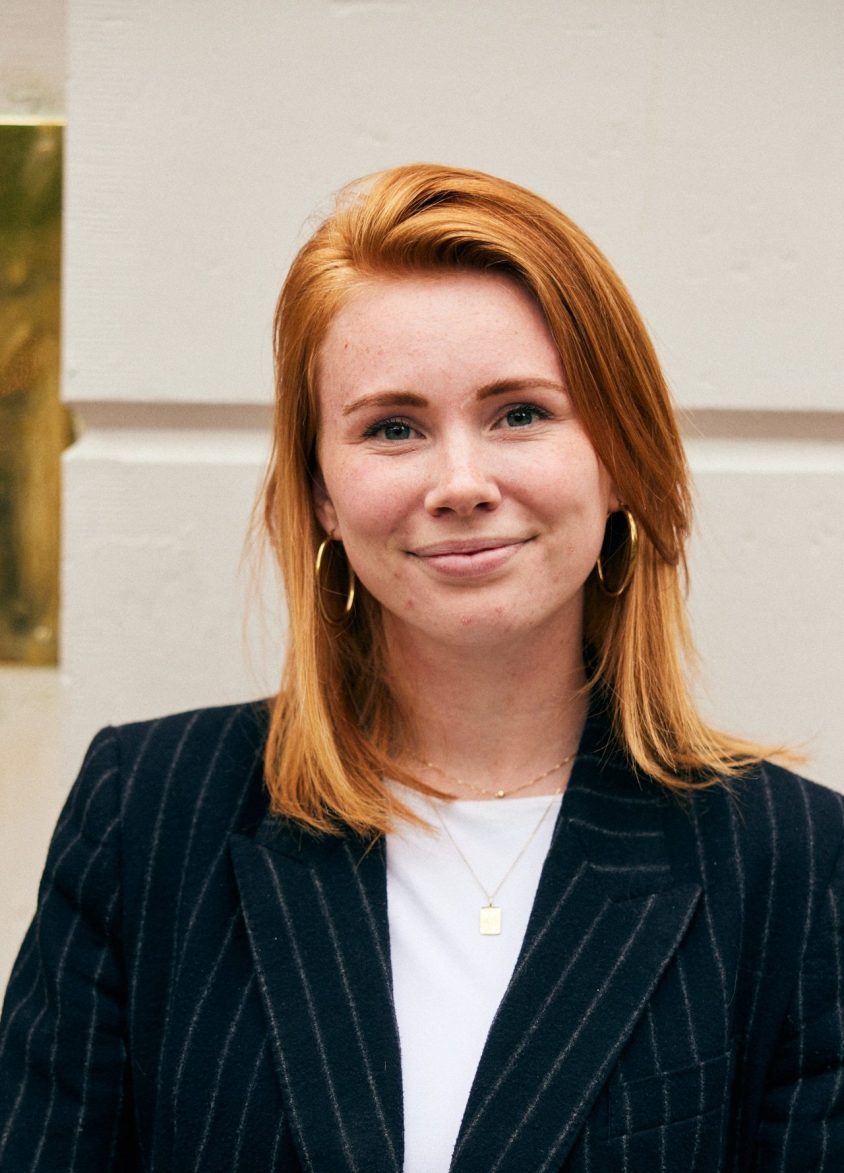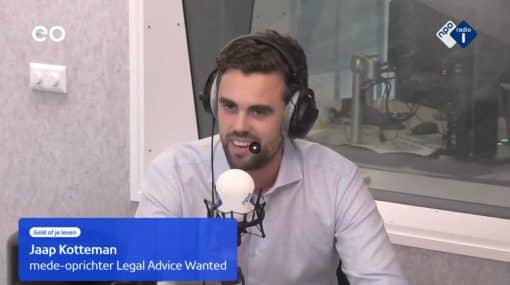L.A.W.: "Legal advice should be accessible."
Just graduated, starting your own business, and gaining significant recognition right away. Since Robin Bosch (25), Jaap Kotteman (26), and Daan Swildens (25) launched their company, Legal Advice Wanted (L.A.W.), their inbox has been overflowing.

On October 28, 2022, on Rechtencircuit.nl:
Just graduated, starting your own business, and gaining substantial recognition right away. Since Robin Bosch (25), Jaap Kotteman (26), and Daan Swildens (25) launched their company, Legal Advice Wanted (L.A.W.), their inbox has been overflowing. More than a thousand students are gratefully taking advantage of the opportunity provided by L.A.W. to apply for their energy allowance. A promising start for the company, as it eventually aims to become a legally-driven services platform led by master’s students. It’s never too early to become known among your future employees!
A Market Gap
Bosch and Kotteman, who know each other from Leiden, are no strangers to entrepreneurship. In their second year, they already had a small company providing legal advice to friends, acquaintances, and family. “We thought it was going quite well and believed: this could work on a larger scale.” Together with their fellow student Swildens, they spent about a year and a half preparing for the launch of L.A.W. The main activities will eventually involve assisting individuals and businesses with legal questions. L.A.W. has a particularly distinctive feature. Within their target audience are those who cannot afford the costs of a lawyer but earn too much to qualify for subsidized legal aid. In other words, falling through the cracks. “It’s a huge gap that only widens because social minimums – for which there is no sustainable solution yet – are fading away.”
The gentlemen observe that people falling into that gap often don’t know what to do when it comes to general legal issues. For instance, entrepreneurs search for an employment contract on the internet and blindly adopt it, which can have negative consequences. They only approach a legal service provider when a problem arises. A significant number of disputes could be avoided by properly arranging things on the backend with a legal expert, the trio adds. “The judge we spoke to about our idea said: if you roll this out well and can serve people nationwide, you take away sixty percent of my work.”
An Energetic Kickstart
To gain immediate recognition, the men capitalized on the rising energy prices. Students are systematically excluded from the one-time energy allowance for low-income households. The reason given is that they ‘diversely’ reside. “That’s, of course, a non-argument, as everyone lives diversely.” A recent court ruling in Gelderland recently sided with a student who sued the municipality of Nijmegen over his energy allowance, but this practice is not the norm nationwide. According to Bosch, Kotteman, and Swildens, this is unacceptable.
Therefore, students can now request a form via the L.A.W. website, allowing them to step-by-step submit an application for the allowance, complete with an objection and notice of default. “Many students think they can’t apply for the allowance because their municipality’s website indicates so. That’s not correct, and we want to help students with that.” The initiative is a great success: thousands of students have signed up so far. Additionally, news channels AT5 and Hart van Nederland have approached the men for reports, and the initiative has made it to the website of nu.nl.
The L.A.W. Process
The first master’s students are yet to be admitted, but the format is solid. When a business or individual reports a legal problem, they indicate which legal area they need help with. The request is then processed, translated into a legal issue, and posted on the platform. Students specializing in the relevant legal area can accept the task. “It’s like ‘tempering’ with a job that looks good on your resume. Besides, it’s similar to the legal aid office, but you get paid well with us.”
Once the student has discussed the assignment with the client, they get to work. When finished, their work is checked through the ‘four-eyes principle’ by a supervisor. Once the client receives the delivered work, they provide the student with a rating. This rating goes into the portfolio that a student builds within the L.A.W. community over time.
The men understand that, with their student-driven company, they cannot answer every question. “We need to realistically assess the cases and know when it’s beyond our expertise.” That’s why they find it crucial to quickly connect with law firms. “This way, we can also directly refer clients and inform the law firm about the case. It saves a lot of duplicated work.”
The plan is in place, and efforts are underway to increase visibility. When asked where they see themselves in six months, they have an immediate answer. “Hopefully in the Porsche Garage,” one of the gentlemen jokes. They also realize that this is still a bit too ambitious, so the men would be very satisfied if they could cover rent and some food with the income. “And the occasional drink, of course!”
Gerelateerde Actualiteiten
Let us know how we can help. We are ready for you.



